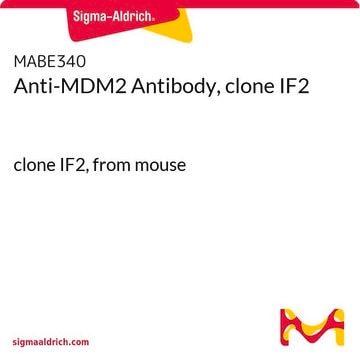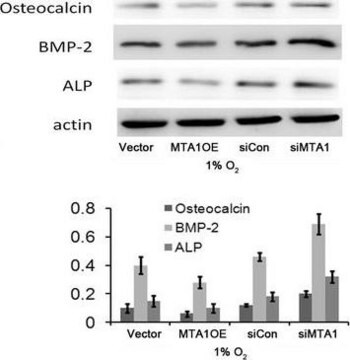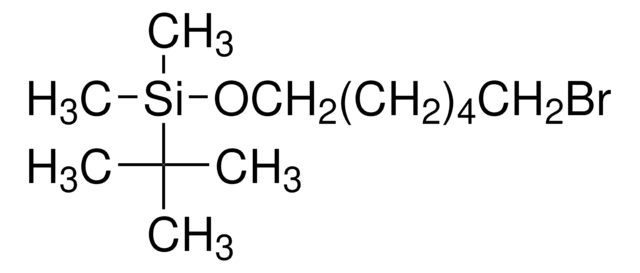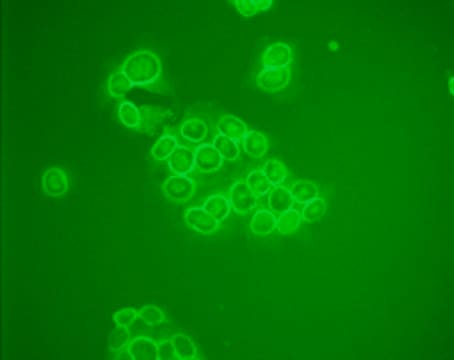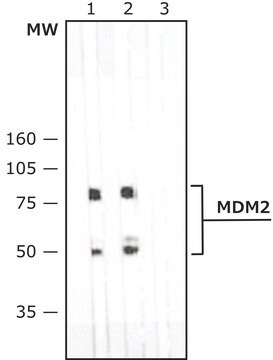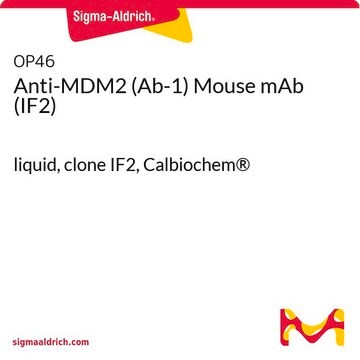MABE281
Anti-MDM2 Antibody, clone 2A10
clone 2A10, from mouse
Sinónimos:
E3 ubiquitin-protein ligase Mdm2, Double minute 2 protein, Hdm2, Oncoprotein Mdm2, p53-binding protein Mdm2
About This Item
Productos recomendados
origen biológico
mouse
Nivel de calidad
forma del anticuerpo
culture supernatant
tipo de anticuerpo
primary antibodies
clon
2A10, monoclonal
reactividad de especies
human
técnicas
immunoprecipitation (IP): suitable
western blot: suitable
isotipo
IgG2aκ
Nº de acceso NCBI
Nº de acceso UniProt
Condiciones de envío
wet ice
modificación del objetivo postraduccional
unmodified
Información sobre el gen
human ... MDM2(4193)
Descripción general
Aplicación
Calidad
Western Blot Analysis: 0.5 µg/mL of this antibody detected MDM2 on 10 µg of A-549 cell lysate.
Descripción de destino
Forma física
Nota de análisis
A-549 cell lysate
Otras notas
Not finding the right product?
Try our Herramienta de selección de productos.
Opcional
Código de clase de almacenamiento
12 - Non Combustible Liquids
Clase de riesgo para el agua (WGK)
WGK 1
Punto de inflamabilidad (°F)
Not applicable
Punto de inflamabilidad (°C)
Not applicable
Certificados de análisis (COA)
Busque Certificados de análisis (COA) introduciendo el número de lote del producto. Los números de lote se encuentran en la etiqueta del producto después de las palabras «Lot» o «Batch»
¿Ya tiene este producto?
Encuentre la documentación para los productos que ha comprado recientemente en la Biblioteca de documentos.
Nuestro equipo de científicos tiene experiencia en todas las áreas de investigación: Ciencias de la vida, Ciencia de los materiales, Síntesis química, Cromatografía, Analítica y muchas otras.
Póngase en contacto con el Servicio técnico